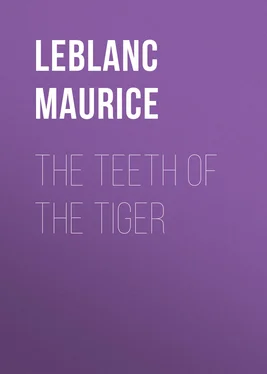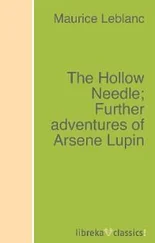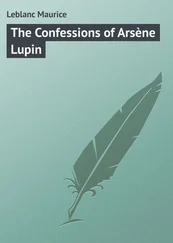Maurice Leblanc - The Teeth of the Tiger
Здесь есть возможность читать онлайн «Maurice Leblanc - The Teeth of the Tiger» — ознакомительный отрывок электронной книги совершенно бесплатно, а после прочтения отрывка купить полную версию. В некоторых случаях можно слушать аудио, скачать через торрент в формате fb2 и присутствует краткое содержание. Жанр: foreign_prose, foreign_antique, на английском языке. Описание произведения, (предисловие) а так же отзывы посетителей доступны на портале библиотеки ЛибКат.
- Название:The Teeth of the Tiger
- Автор:
- Жанр:
- Год:неизвестен
- ISBN:нет данных
- Рейтинг книги:4 / 5. Голосов: 1
-
Избранное:Добавить в избранное
- Отзывы:
-
Ваша оценка:
- 80
- 1
- 2
- 3
- 4
- 5
The Teeth of the Tiger: краткое содержание, описание и аннотация
Предлагаем к чтению аннотацию, описание, краткое содержание или предисловие (зависит от того, что написал сам автор книги «The Teeth of the Tiger»). Если вы не нашли необходимую информацию о книге — напишите в комментариях, мы постараемся отыскать её.
The Teeth of the Tiger — читать онлайн ознакомительный отрывок
Ниже представлен текст книги, разбитый по страницам. Система сохранения места последней прочитанной страницы, позволяет с удобством читать онлайн бесплатно книгу «The Teeth of the Tiger», без необходимости каждый раз заново искать на чём Вы остановились. Поставьте закладку, и сможете в любой момент перейти на страницу, на которой закончили чтение.
Интервал:
Закладка:
"Yes."
"Had your husband any brothers or sisters?"
"No."
"Therefore there is no descendant of Elizabeth Roussel living?"
"No."
"Very well. But Elizabeth Roussel had two sisters, did she not?"
"Yes."
"Ermeline Roussel, the elder, went abroad and was not heard of again. The other, the younger—"
"The other was called Armande Roussel. She was my mother."
"Eh? What do you say?"
"I said my mother's maiden name was Armande Roussel, and I married my cousin, the son of Elizabeth Roussel."
The statement had the effect of a thunderclap. So, upon the death of Hippolyte Fauville and his son Edmond, the direct descendants of the eldest sister, Cosmo Mornington's inheritance passed to the other branch, that of Armande Roussel; and this branch was represented so far by Mme. Fauville!
The Prefect of Police and the examining magistrate exchanged glances and both instinctively turned toward Don Luis Perenna, who did not move a muscle.
"Have you no brother or sister, Madame?" asked the Prefect.
"No, Monsieur le Préfet, I am the only one."
The only one! In other words, now that her husband and son were dead, Cosmo Mornington's millions reverted absolutely and undeniably to her, to her alone.
Meanwhile, a hideous idea weighed like a nightmare upon the magistrates and they could not rid themselves of it: the woman sitting before them was the mother of Edmond Fauville. M. Desmalions had his eyes on Don Luis Perenna, who wrote a few words on a card and handed it to the Prefect.
M. Desmalions, who was gradually resuming toward Don Luis his courteous attitude of the day before, read it, reflected a moment, and put this question to Mme. Fauville:
"What was your son Edmond's age?"
"Seventeen."
"You look so young—"
"Edmond was not my son, but my stepson, the son of my husband by his first wife, who died,"
"Ah! So Edmond Fauville—" muttered the Prefect, without finishing his sentence.
In two minutes the whole situation had changed. In the eyes of the magistrates, Mme. Fauville was no longer the widow and mother who must on no account be attacked. She had suddenly become a woman whom circumstances compelled them to cross-examine. However prejudiced they might be in her favour, however charmed by the seductive qualities of her beauty, they were inevitably bound to ask themselves, whether for some reason or other, for instance, in order to be alone in the enjoyment of the enormous fortune, she had not had the madness to kill her husband and to kill the boy who was only her husband's son. In any case, the question was there, calling for a solution.
The Prefect of Police continued:
"Do you know this turquoise?"
She took the stone which he held out to her and examined it without the least sign of confusion.
"No," she said. "I have an old-fashioned turquoise necklace, which I never wear, but the stones are larger and none of them has this irregular shape."
"We found this one in the safe," said M. Desmalions. "It forms part of a ring belonging to a person whom we know."
"Well," she said eagerly, "you must find that person."
"He is here," said the Prefect, pointing to Don Luis, who had been standing some way off and who had not been noticed by Mme. Fauville.
She started at the sight of Perenna and cried, very excitedly:
"But that gentleman was here yesterday evening! He was talking to my husband—and so was that other gentleman," she said, referring to Sergeant Mazeroux. "You must question them, find out why they were here.
You understand that, if the turquoise belonged to one of them—"
The insinuation was direct, but clumsy; and it lent the greatest weight to Perenna's unspoken argument:
"The turquoise was picked up by some one who saw me yesterday and who wishes to compromise me. Apart from M. Fauville and the detective sergeant, only two people saw me: Silvestre, the manservant, and Mme. Fauville. Consequently, as Silvestre is outside the question, I accuse Mme. Fauville of putting the turquoise in the safe."
M. Desmalions asked:
"Will you let me see the necklace, Madame?"
"Certainly. It is with my other jewels, in my wardrobe. I will go for it."
"Pray don't trouble, Madame. Does your maid know the necklace?"
"Quite well."
"In that case, Sergeant Mazeroux will tell her what is wanted."
Not a word was spoken during the few minutes for which Mazeroux was absent. Mme. Fauville seemed absorbed in her grief. M. Desmalions kept his eyes fixed on her.
The sergeant returned, carrying a very large box containing a number of jewel-cases and loose ornaments.
M. Desmalions found the necklace, examined it, and realized, in fact, that the stones did not resemble the turquoise and that none of them was missing. But, on separating two jewel cases in order to take out a tiara which also contained blue stones, he made a gesture of surprise.
"What are these two keys?" he asked, pointing to two keys identical in shape and size with those which opened the lock and the bolt of the garden door.
Mme. Fauville remained very calm. Not a muscle of her face moved. Nothing pointed to the least perturbation on account of this discovery. She merely said:
"I don't know. They have been there a long time."
"Mazeroux," said M. Desmalions, "try them on that door."
Mazeroux did so. The door opened.
"Yes," said Mme. Fauville. "I remember now, my husband gave them to me.
They were duplicates of his own keys—"
The words were uttered in the most natural tone and as though the speaker did not even suspect the terrible charge that was forming against her.
And nothing was more agonizing than this tranquillity. Was it a sign of absolute innocence, or the infernal craft of a criminal whom nothing is able to stir? Did she realize nothing of the tragedy which was taking place and of which she was the unconscious heroine? Or did she guess the terrible accusation which was gradually closing in upon her on every side and which threatened her with the most awful danger? But, in that case, how could she have been guilty of the extraordinary blunder of keeping those two keys?
A series of questions suggested itself to the minds of all those present.
The Prefect of Police put them as follows:
"You were out, Madame, were you not, when the murders were committed?"
"Yes."
"You were at the opera?"
"Yes; and I went on to a party at the house of one of my friends, Mme. d'Ersingen."
"Did your chauffeur drive you?"
"To the opera, yes. But I sent him back to his garage; and he came to fetch me at the party."
"I see," said M. Desmalions. "But how did you go from the opera to Mme. d'Ersingen's?"
For the first time, Mme. Fauville seemed to understand that she was the victim of a regular cross-examination; and her look and attitude betrayed a certain uneasiness. She replied:
"I took a motor cab."
"In the street?"
"On the Place de l'Opéra."
"At twelve o'clock, therefore?"
"No, at half-past eleven: I left before the opera was over."
"You were in a hurry to get to your friend's?"
"Yes … or rather—"
She stopped; her cheeks were scarlet; her lips and chin trembled; and she asked:
"Why do you ask me all these questions?"
"They are necessary, Madame. They may throw a light on what we want to know. I beg you, therefore, to answer them. At what time did you reach your friend's house?"
"I hardly know. I did not notice the time."
"Did you go straight there?"
"Almost."
"How do you mean, almost?"
"I had a little headache and told the driver to go up the Champs Elysées and the Avenue du Bois—very slowly—and then down the Champs Elysées again—"
She was becoming more and more embarrassed. Her voice grew indistinct.
Читать дальшеИнтервал:
Закладка:
Похожие книги на «The Teeth of the Tiger»
Представляем Вашему вниманию похожие книги на «The Teeth of the Tiger» списком для выбора. Мы отобрали схожую по названию и смыслу литературу в надежде предоставить читателям больше вариантов отыскать новые, интересные, ещё непрочитанные произведения.
Обсуждение, отзывы о книге «The Teeth of the Tiger» и просто собственные мнения читателей. Оставьте ваши комментарии, напишите, что Вы думаете о произведении, его смысле или главных героях. Укажите что конкретно понравилось, а что нет, и почему Вы так считаете.












